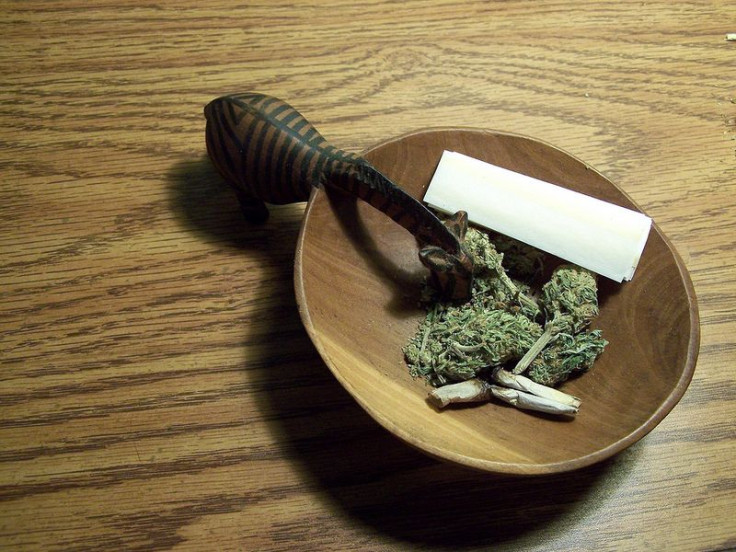Marijuana's Psychoactive Ingredient, THC, Prevents Brain Damage Before And After Injury

Taking low doses of tetrahydrocannabinol, or THC, the psychoactive component in marijuana, could protect your brain from long-term cognitive damage following injuries, a new study claims.
Based on his studies published in Behavioural Brain Research and Experimental Brain Research, Yosef Sarne, professor at Tel Aviv University's Adleson Center for the Biology of Addictive Diseases, found that the recreational drug has neuroprotective abilities, and those who have suffered from hypoxia, or lack of oxygen, seizures or toxic drug-related injuries to the brain could benefit from low doses.
"This treatment, especially in light of the long time frame for administration and the low dosage, could be applicable to many cases of brain injury and be safer over time," Sarne said in a press release.
His studies demonstrated that low doses of THC, approximately 1,000 to 10,000 times smaller than a marijuana cigarette, could be taken within 1 to 7 days before, or 1 to 3 days after, an injury for benefits to the brain. According to Sarne, THC may cause a tiny damage to the brain, then form resistance to preserve cognitive function and brain cells.
The study was performed in mice at low doses before or after brain trauma, while the control group was not given THC. After close examination three to seven weeks after the injury, Sarne found that the THC-treated mice scored high in learning and memory-based behavioral tests.
"Due to the long therapeutic time window, this treatment can be used not only to treat injury after the fact, but also to prevent injury that might occur in the future," Sarne stated.
Some of those injuries could include blood supply interruptions to the brain, which sometimes occur after using cardiopulmonary heart-lung machines for heart surgery. THC could be delivered beforehand in this case as a preventive measure.
The low dosage is also beneficial for epileptic patients or those with high heart attack risks because they also run the risk of brain injury.
Past studies have involved administering high doses of THC in a matter of 30 minutes before or after injuries. Sarne's future research with the Rabin Medical Center will focus on lower dosage to prevent heart damage. His preliminary findings have shown THC playing a protective role for cardiac ischemia, when heart muscles don't receive enough blood flow.
Sources:
Amal H, Fridman-Rozevich L, Senn R, et al. Long-term consequences of a single treatment of mice with an ultra-low dose of ∆9-tetrahydrocannabinol (THC). Behavioural Brain Research. 2010.
Fishbein M, Gov S, Assaf F, et al. Long-term behavioral and biochemical effects of an ultra-low dose of ∆9-tetrahydrocannabinol (THC): neuroprotection and ERK signaling. Experimental Brain Research. 2012.



























